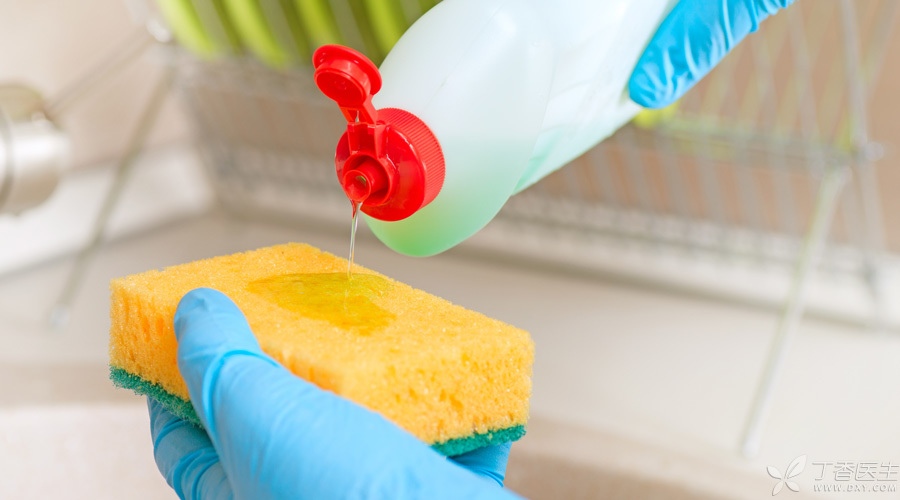
More than a decade ago, if a couple divorced over the problem of washing dishes, it would certainly have been on the front page of local newspapers.
But now more people seem to be able to stand on the united front. They don’t like washing dishes very much. They share the same burden (borrowing) and heart (mouth) for washing dishes, which grinds people’s household chores.
For example, washing too many dishes will hurt your hands, the satiny feeling of detergent remaining on your hands is disgusting, and there are rumors that detergent is actually a contraceptive, which will lead to infertility.
In this way, I believe those friends who really like washing dishes will have to whisper:
Can’t we live too long? Is there what in the detergent? Do we have a good solution to this difficult problem? … …
Detergent is by no means what’s contraceptive pill.
First of all, it must be said that there is no research showing that detergent is related to infertility.
Therefore, it is totally unnecessary to worry that children will not be born with detergent.
Detergent belongs to one of our daily washing and chemical products, generally referred to as [detergent]. Its main component is a kind of substance called [surfactant]. All washing and chemical products with decontamination ability cannot be without their credit.
Is it harmful to use detergent for a long time?
Yes… But this is early for the environment.
Early detergents did cause some controversy because some detergents contain phosphorus, which will lead to eutrophication of environmental water bodies. Today’s detergents have long been banned from adding phosphorus.
Is it harmful to health? Frankly speaking, there will be almost no.
There are thousands of kinds of surfactants, only a few dozen of which are selected for daily necessities, while the requirements that can be used in detergent formulas are higher and the types are more limited.
The safety, carcinogenicity and reproductive toxicity of the only [selected] ingredients (i.e. Contraception and teratogenicity that some people worry about above) have long been thoroughly studied.
In the message of the previous article, many friends expressed their concern about the chemical composition of detergent, so they resolutely did not use it for decades at home. They only used rice washing water and hot water to wash dishes, which was really unnecessary.
Most detergents can reach the [direct drinking] level.
Yes, even if there are detergent residues on tableware, fruits and vegetables, you don’t have to worry too much when you eat a mouthful of detergent.
The active ingredients of detergent have no smell. If you wash and rinse the bowl, you still feel the residual smell. In fact, it is only edible essence, and some can be smelled and tasted at very low concentrations.
And you know, most manufacturers are so stingy that they are reluctant to put more edible essence.
If you really feel diaphragmatic response in your heart, you can rest assured by turning on the faucet and rinsing it with running water for more than ten seconds.
Of course… don’t buy substandard products.
Detergent is a well-developed commodity. In recent years, some market surveys have found that the qualified rate of detergent is very high, approaching 100%.
Unqualified products are often just some unusual local miscellaneous brands. The problem with most unqualified products is jerry-building, or the concentration of surfactant used is not enough, and some of them have not been sterilized and the bacteria exceed the standard.
If you use substandard products to produce some what moths, it is really hard to say. Therefore, it is suggested to buy them from regular channels.
Does detergent hurt your hand?
Writing here, I feel that many friends’ eyes are shining. Those who like to wash dishes and those who don’t like to wash dishes may need to have a fight first.
The answer is… It does hurt.
Have you noticed that we also use hand sanitizer or body wash, but the hand feeling is very different from detergent?
This is because the composition of various oil stains is multifarious, and for different oily substances, the types of surfactants needed for washing will also be different.
- Hand sanitizer and body wash, they deal with the filth itself is attached to the skin. Detergent, however, has to deal with leftovers on stainless steel, ceramics, plastic and other interfaces.
If the body wash has too strong a degreasing and degreasing effect, it will destroy a layer of protective lipid on our skin surface. As a result, the skin will be very dry after washing.
If detergent cannot effectively remove oil and degrease, then when we eat, we can still recall that the last meal was what…
However, this relatively strong ability to remove oil and degrease will make us feel that our hands have been hurt by detergent after washing dishes.
How do you wash dishes without hurting your hands?
In recent years, there have also been many new surfactants. For example, methyl fatty acid sulfonate (MES) is a new product that can effectively decontaminate and does not hurt hands very much.
However, it is a pity that the profit margin of the detergent industry is relatively low. It is also a 500 ml package of detergent. The value of shower gel is an order of magnitude higher than that of detergent. Obviously, the driving force for product upgrading is not so big.
In other words, as long as we are willing to pay a higher price for detergent, there will be manufacturers willing to produce products that do not hurt hands, and we will have more products to choose from.
Of course, there are many other ways to avoid hurting our hands. For example, wear rubber gloves when washing dishes, remember to wipe skin care products after washing hands, or simply use the dishwasher directly.
Is this better than the question of who washes the dishes, quarrels and divorces?
